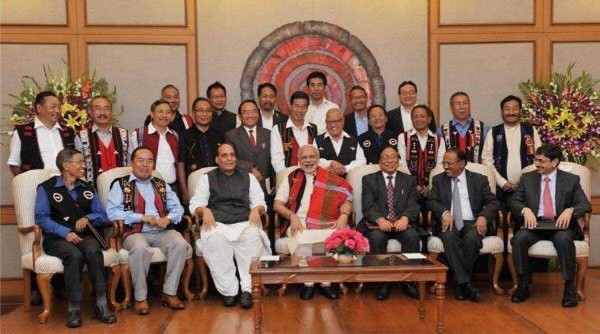Framework Agreement

- 07 Aug 2025
In News:
The Framework Agreement (FA), signed on 3rd August 2015 between the Government of India and the National Socialist Council of Nagalim–Isak-Muivah (NSCN-IM), remains a central element in the ongoing Naga peace process. Its 10th anniversary (2025) witnessed renewed debates over its sanctity and future.
Background
- The Indo-Naga conflict has persisted for over six decades, rooted in demands for sovereignty and recognition of the Nagas’ unique identity.
- The Government of India first acknowledged the “unique history of the Nagas” in 2002 (Amsterdam talks), paving the way for structured peace negotiations.
The Framework Agreement: Key Provisions
- Recognition of Political Identity: India recognized the Nagas’ distinct historical and cultural identity.
- Shared Sovereignty: Proposed a cooperative model of governance, dividing powers between India and Nagalim while ensuring coexistence.
- Political Equality: Both India’s and Nagalim’s political systems to be respected, avoiding a hierarchical relationship.
- People-Centric Governance: Emphasizes sovereignty residing with the people, aiming for inclusive, democratic self-rule.
- Commitment to Peace: Seeks to end armed struggle and establish a roadmap for lasting peace and autonomy.
Political Significance
- The accord symbolically acknowledges the existence of the “Naga nation.”
- It shifted the discourse from an administrative problem to a political conflict requiring negotiated settlement.
- It was signed in New Delhi in the presence of Prime Minister Narendra Modi and interlocutor RN Ravi.
Current Developments
- On the 10th anniversary (2025), NSCN-IM chairman Q Tuccu reaffirmed commitment to the FA, calling it the “torchbearer of Naga sovereignty”.
- He criticized the Naga National Political Groups (NNPGs)—a coalition of other Naga factions—accusing them of aligning too closely with New Delhi by accepting a settlement under the Indian Constitution (“Agreed Position”).
- Tuccu argued that the NNPGs’ stance compromises the Nagas’ historical and political identity, unlike the FA which ensures recognition of sovereign rights.
- NSCN-IM maintains that the Government of India is slow in implementing the FA, but it remains committed despite challenges.
